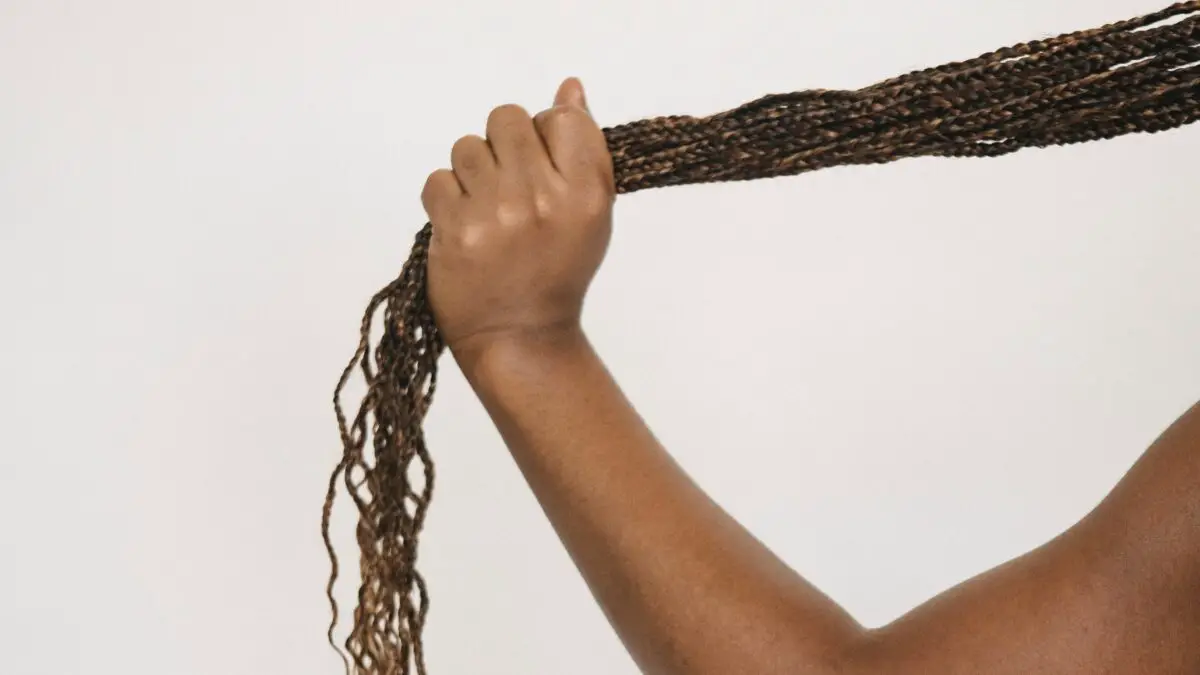Welcome to Improving Your English, where today we are going to unravel the world of head and hair idioms!
These vibrant threads of our language weave through everyday conversation, adding depth and imagery – but also some confusion, if you don’t know what an idiom is or how to spot one.
Don’t worry though, because with each of these hair and head idioms, we have included a helpful definition and example sentence to help explain everything.

Hair idioms
Split hairs
You won’t believe how many hair idioms there are in English, but we’ll begin with split hairs. This refers to making unnecessary distinctions or creating petty arguments about minor details.
“We spent half the meeting splitting hairs over the catering arrangements instead of focusing on how we would handle the negotiation.”
People may tell you there is no need to split hairs when you make a fuss over trivial, irrelevant things.
Let your hair down
When it’s time to relax and enjoy yourself, especially after a period where you have been behaving conservatively or formally, you let your hair down.
This means you are just being yourself, usually in a social setting, so it can also be used as a party idiom.
“After a long week of work, Elaine decided to let her hair down and have a fun night out with friends.”
A bad hair day
People will say they are having a bad hair day when they feel their hair looks untidy or it’s difficult to style. It can even be a reflection of a person’s overall bad mood or luck.
“Please, nobody talk to me, I’m having a bad hair day.”
Make your hair stand on end
Some of these hair idioms describe the feeling of shock or exhilaration. If something or someone makes your hair stand on end, it/they have given you a shock or frightened you deeply.
“The eerie story she told made everyone’s hair stand on end.”
This could also describe a feeling of extreme excitement or anticipation.
Hair-raising
A similar saying to the one above is hair-raising. This time something has happened that is extremely thrilling, exciting, or frightening.
“The rollercoaster ride was absolutely hair-raising; it had everyone screaming with excitement.”
Both of these are good examples of scary idioms.
Get in someone’s hair
If someone is annoying or bothering you by being too close or interfering in your affairs, you might complain that they are getting in your hair.
“Her constant questions and intrusions were starting to get in my hair; I needed some space.”
In this situation, you could tell them to get out of your hair, although it’s impolite to say this directly to someone.
Keep your hair on
This is a fun British idiom that is said in a jokey way. Instead of telling someone to stay calm and not get angry or upset, tell them to keep their hair on!
“Keep your hair on, love, I’ll have this cleaned up in no time.”
Again, be careful how you use this because it may not be well received if the person is genuinely upset about something.
Pull your hair out
Has a person or a situation ever frustrated you to the point that you felt like pulling your hair out? Well, that is what this expression is referring to – an extreme state of exasperation.
“With all the technical issues and looming deadlines, she felt like pulling her hair out from the stress.”
This also appears on our list of stress idioms along with some other helpful expressions.
A hair’s breadth
And yes, before you check, it is spelled this way. ‘Breadth’ is another word for ‘width’, so you can imagine that a hair’s breadth is a very small or narrow margin or distance.
“He missed winning the race by a hair’s breadth; it was a photo finish.”
“The cars passed on the narrow road with just a hair’s breadth between them.”
Make your hair curl
You’d never be able to guess the meaning of some of these hair idioms, and that’s why this list is here to help you.
Something could make your hair curl (in an idiomatic sense) if it makes you feel shocked, embarrassed, uncomfortable, shameful, or worried.
“The awkward performance made everyone’s hair curl.”

Head idioms
Now that we have covered hair idioms, let’s turn our attention to head idioms. You can also check out some face idioms featuring different facial features.
Use your head/noggin/noodle
‘Noggin’ and ‘noodle’ are slang terms for ‘head’ or ‘brain’. So, whether someone tells you to use your head, use your noggin, or use your noodle, they all mean that you need to think carefully and use your own intelligence.
“Come on, Steve, use your noggin for a change!”
There are some less casual idioms about knowledge and wisdom here.
Off the top of your head
If you have to recall or produce some information without much thought or preparation, you do so off the top of your head.
“I can’t give you an exact figure off the top of my head, but we have around 50 people coming.”
“I reconize his face but I can’t recall his name off the top of my head.”
A good head on your shoulders
People may say that you have a good head on your shoulders if they consider you wise, responsible, and sensible – especially when it comes to making decisions.
“Jess has a good head on her shoulders, I think you can trust her with this project.”
There are more idioms about decision-making in a separate article.
Keep a level head
Are you a calm and rational person? This probably means you can keep a level head, remaining calm, sensible, and focused during a difficult or stressful situation.
“During the crisis, it was important for the leader to keep a level head and make wise decisions.”
Alternatively, you could be described as level-headed.
Head and shoulders above
To be head and shoulders above (someone or something) means to be vastly superior or significantly better than them or it.
“In my opinion, one of the candidates was head and shoulders above the others.”
Put your heads together
If it is mentioned that you need to put your heads together, it’s time to collaborate or work as a team to solve a problem or accomplish a task.
This could be a useful working idiom to know, as there are plenty of situations where you might do this at work.
“Let’s put our heads together and come up with a solution to this problem.”
Two heads are better than one
We allowed this proverb onto our head idioms list because it fits so well! In fact, the meaning is similar to the expression above.
Saying that two heads are better than one just means that sometimes two people can think of better ideas or solutions than one person alone.
“Let’s go for a coffee and talk this through. Two heads are better than one, after all.”
By the way, do you know the difference between an idiom and a proverb?
Have your head in the clouds
Someone who has their head in the clouds is aloof and fanciful, often daydreaming, apparently detached from reality. This can make it difficult for them to focus on what needs to be done!
“I asked Petra to cook dinner with me but she seems to have her head in the clouds so she isn’t being much help!”
You may sometimes have to tell this kind of person to get their head out of the clouds so they can focus on reality for a while.
This phrase dates back to at least the 1600s, but its exact origin is unknown.
Head is spinning
Saying your head is spinning is another way of saying you feel dizzy or light-headed. It may be because of illness, emotions, or just going on an intense fairground ride!
“That rollercoaster was crazy, I think my head is going to be spinning for days!”
“My head is spinning after hearing this news. I need some time to myself.”
You could also say your head is in a spin, and whatever causes you to feel this way can be described as a head-spinner – lots of head idioms with similar meanings.
Head over heels
The last of our head idioms is also a romantic expression. To be head over heels is to be completely in love, infatuated, or enamored.
“It’s clear to see they are head over heels, but I wonder for how long?”
You’ll often hear the phrase head over heels in love.
“She fell head over heels in love with him the moment they met.”
Did you realize there were so many head and hair idioms? From ‘keeping a level head’ to ‘letting your hair down,’ these expressions add depth and richness to our language.
We hope you enjoyed learning the meaning of these hair and head idioms and you’ll be able to practice using them in conversation soon.



